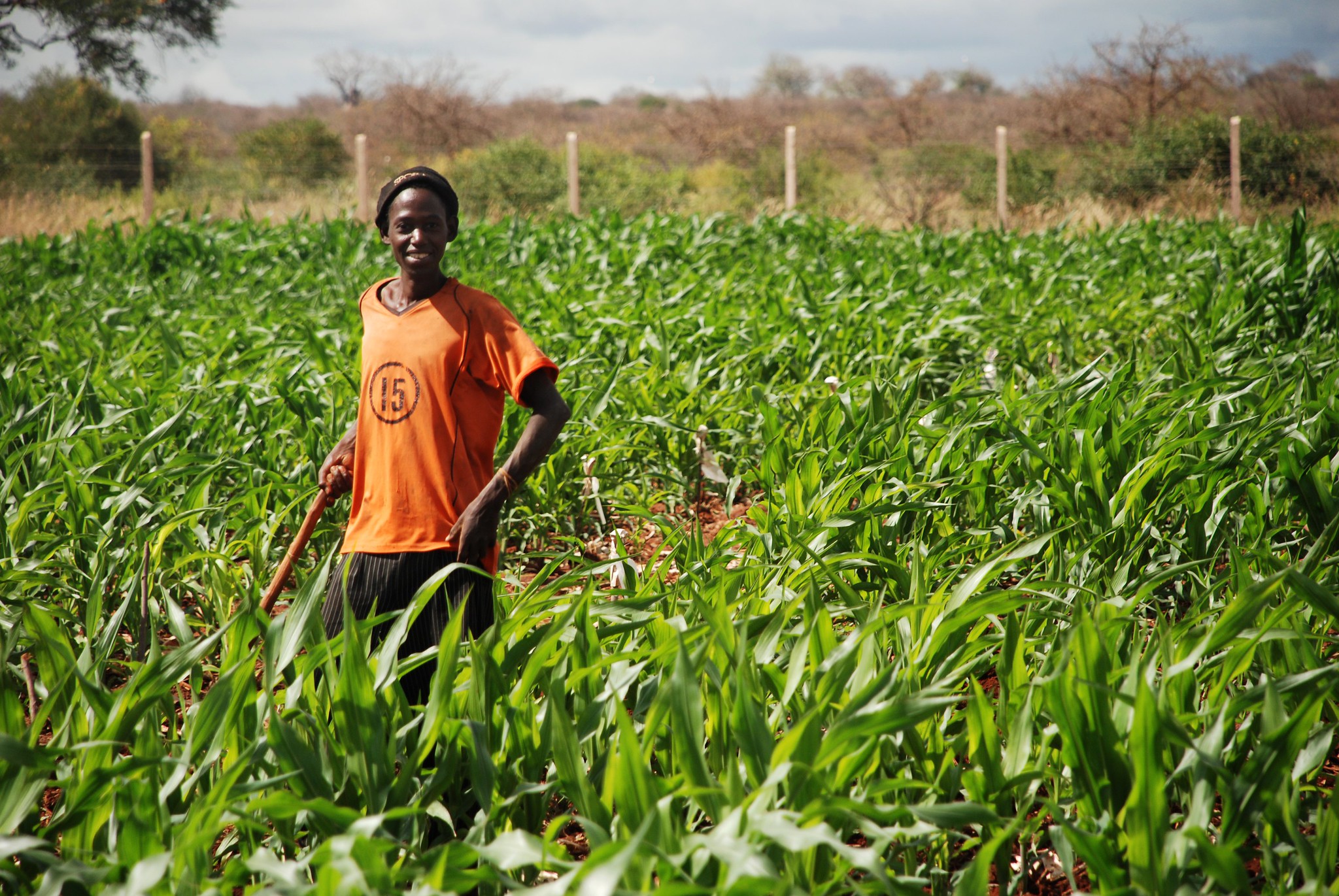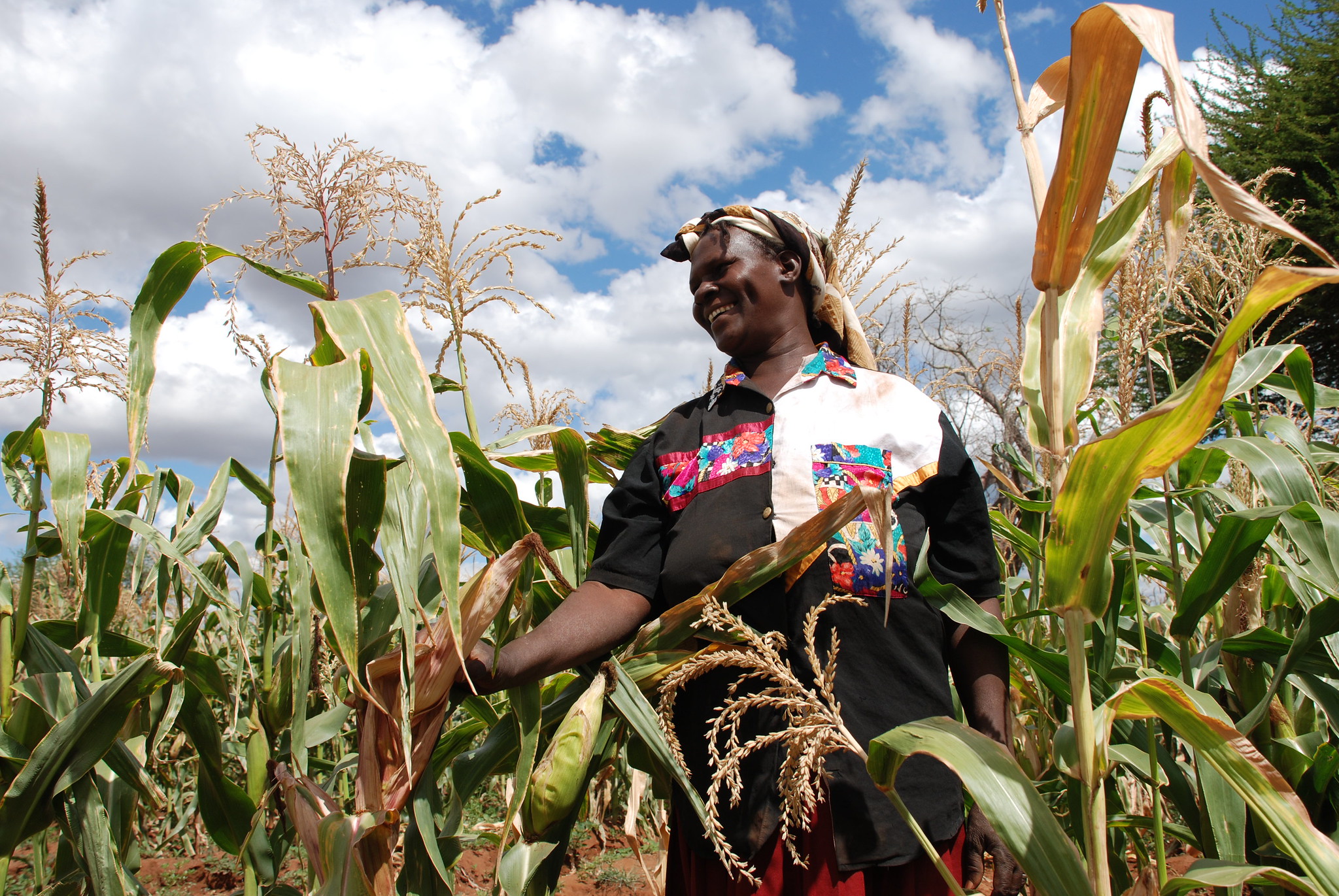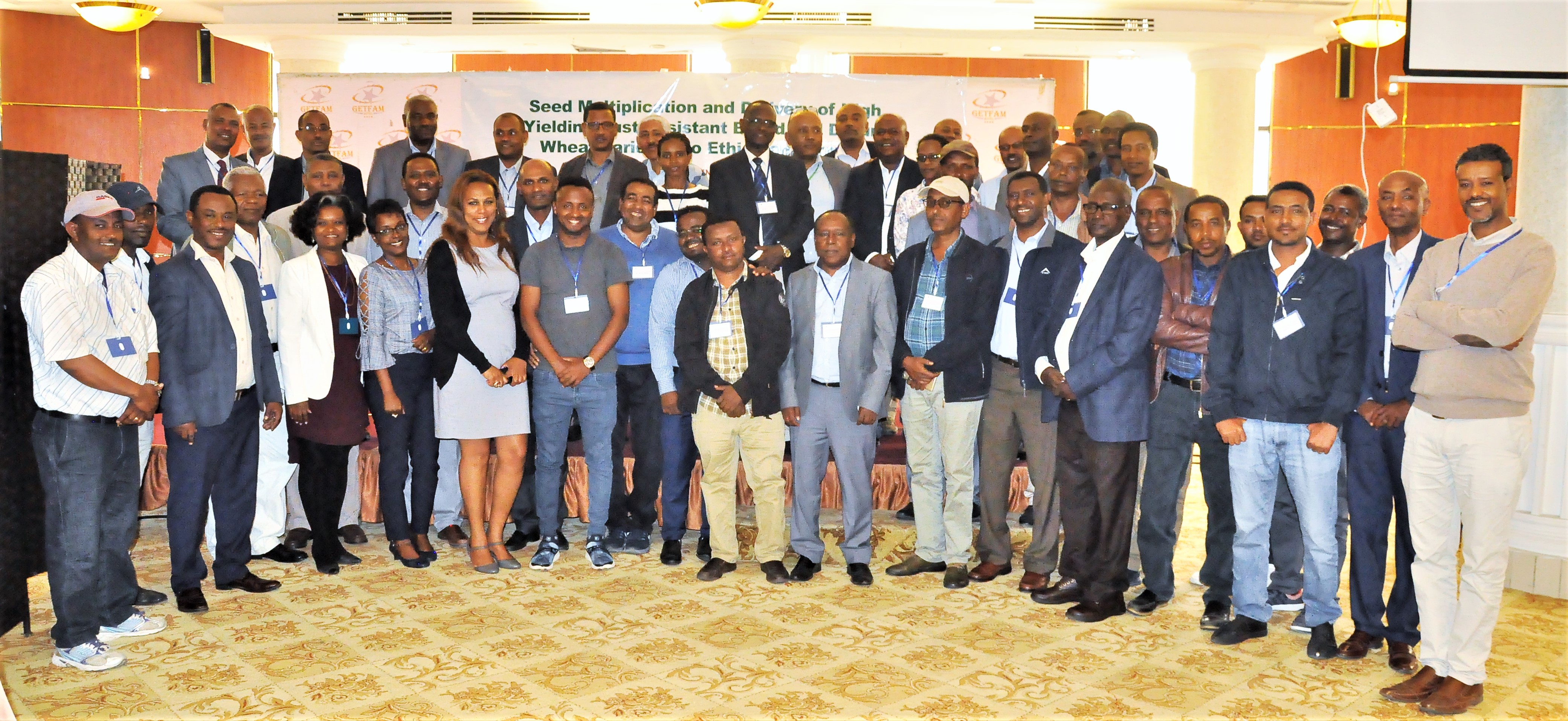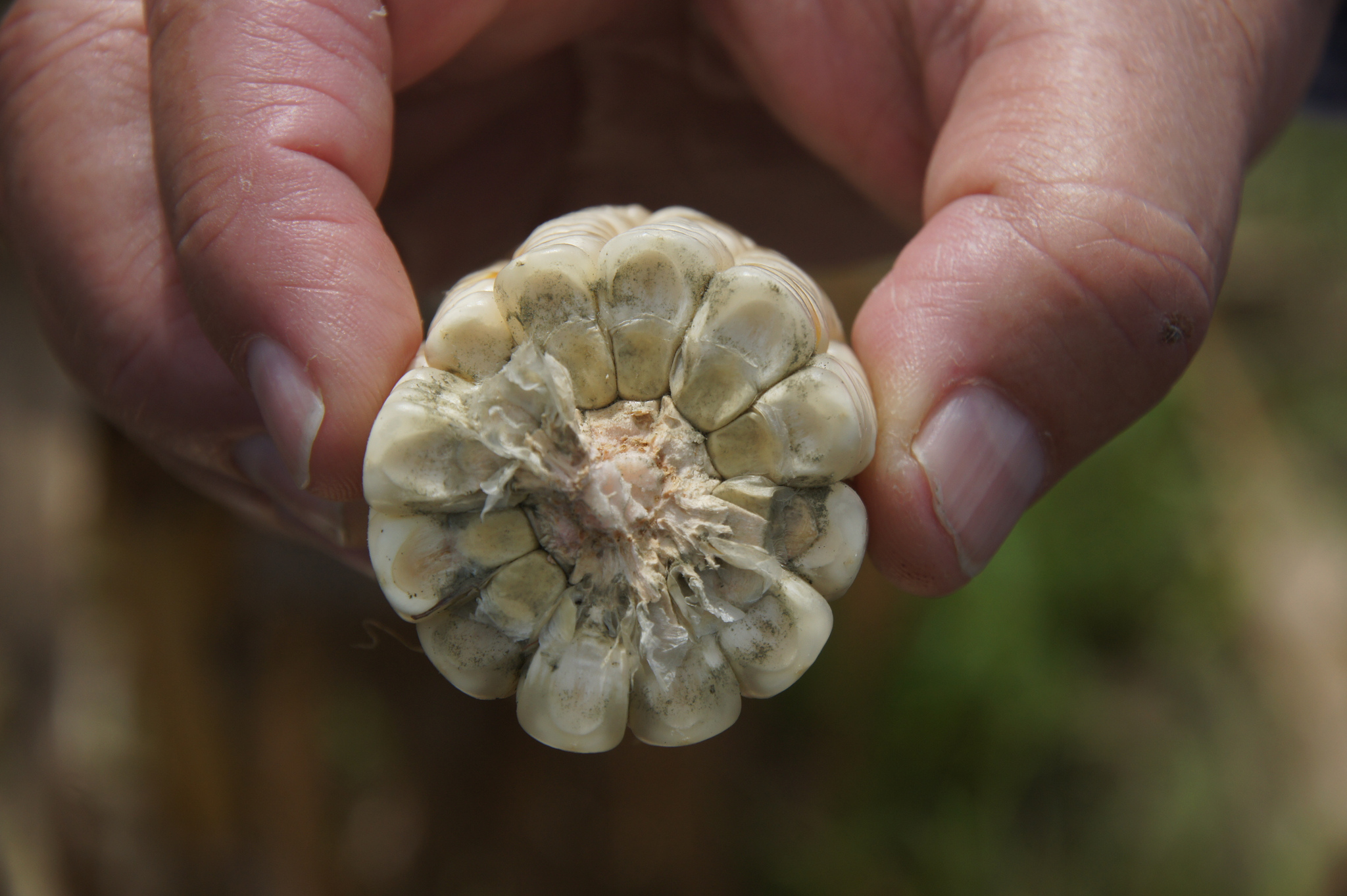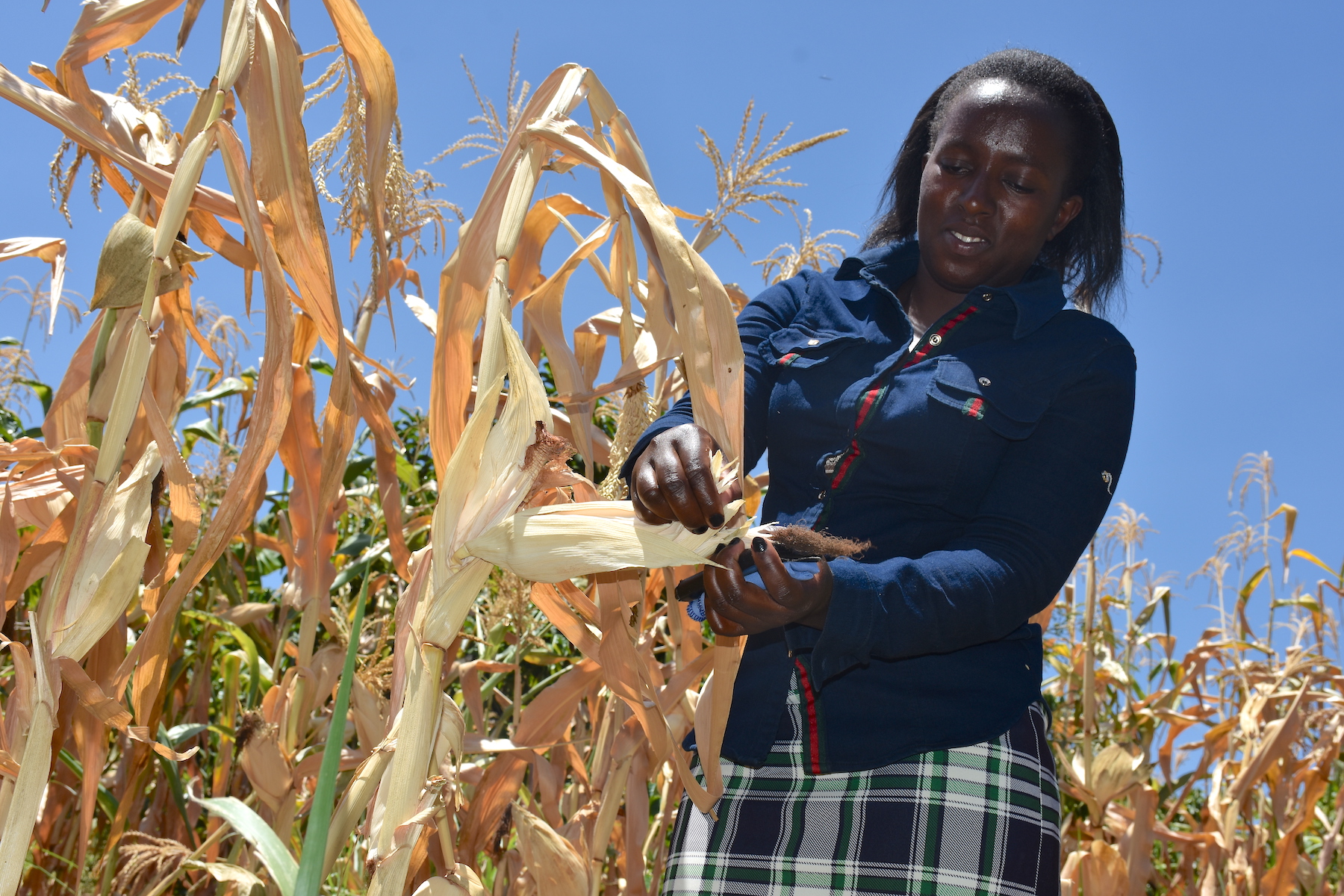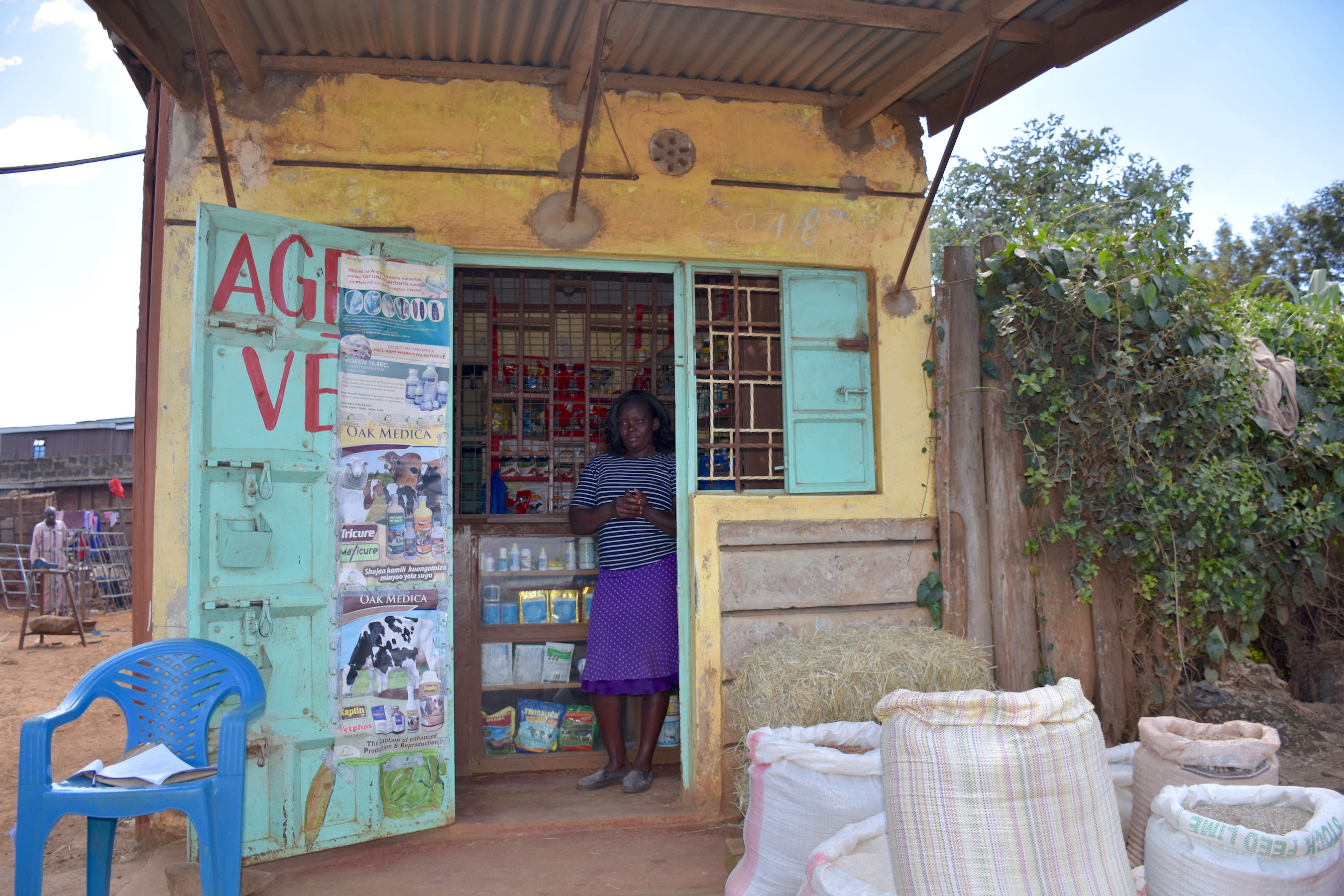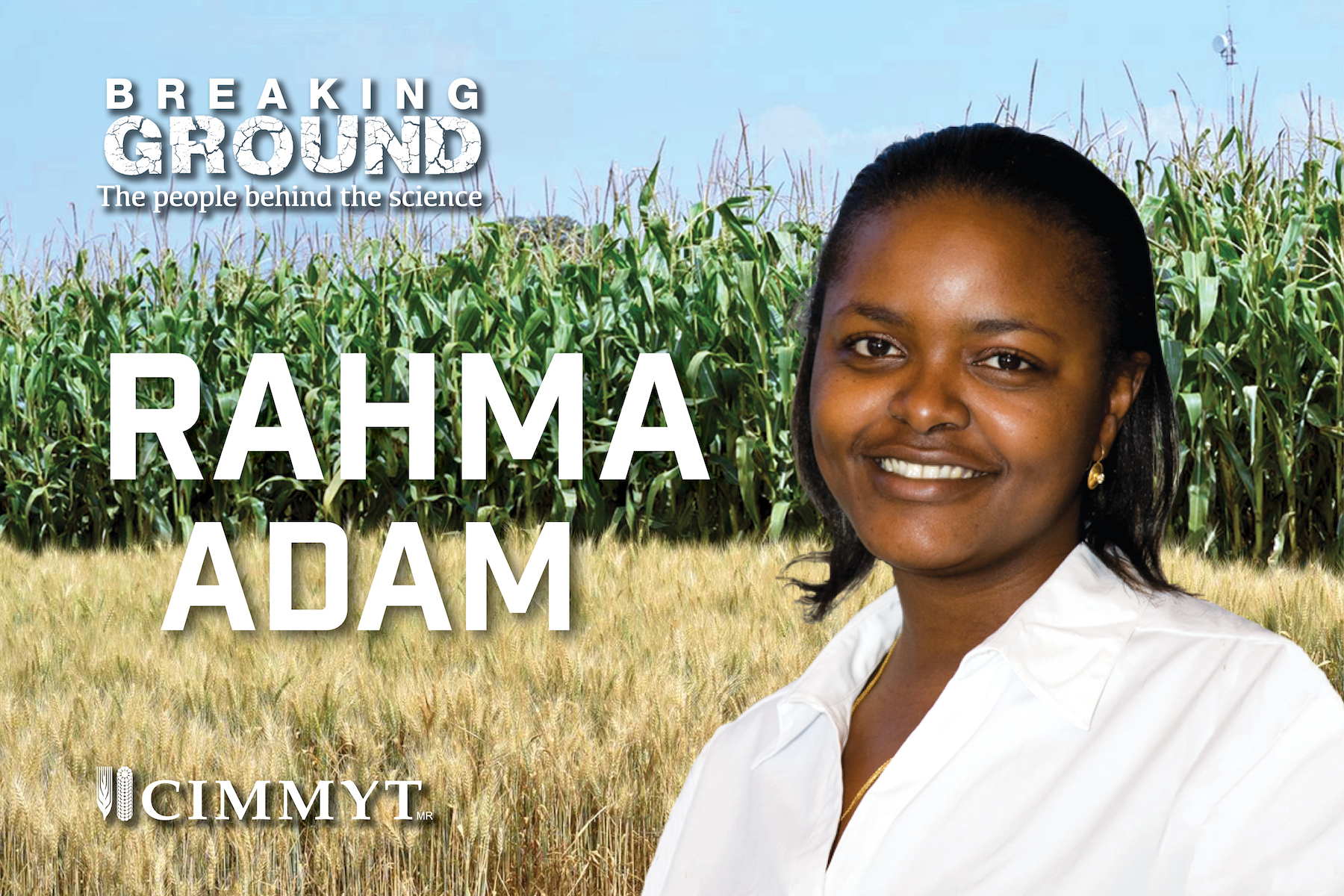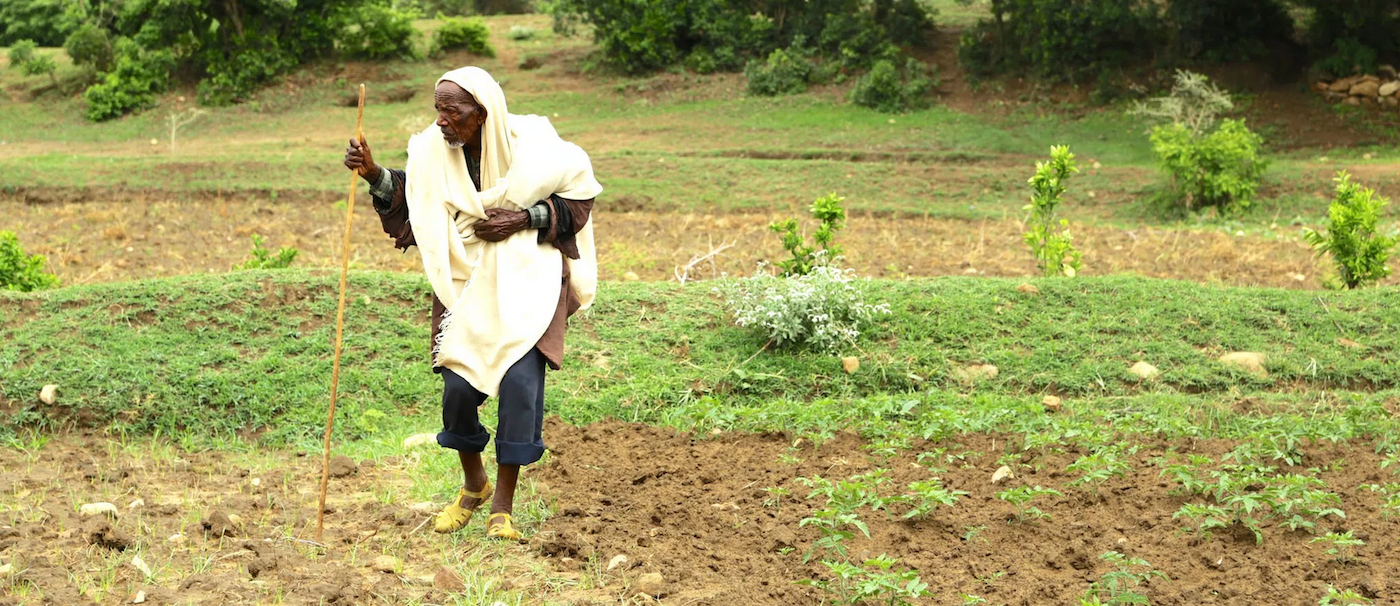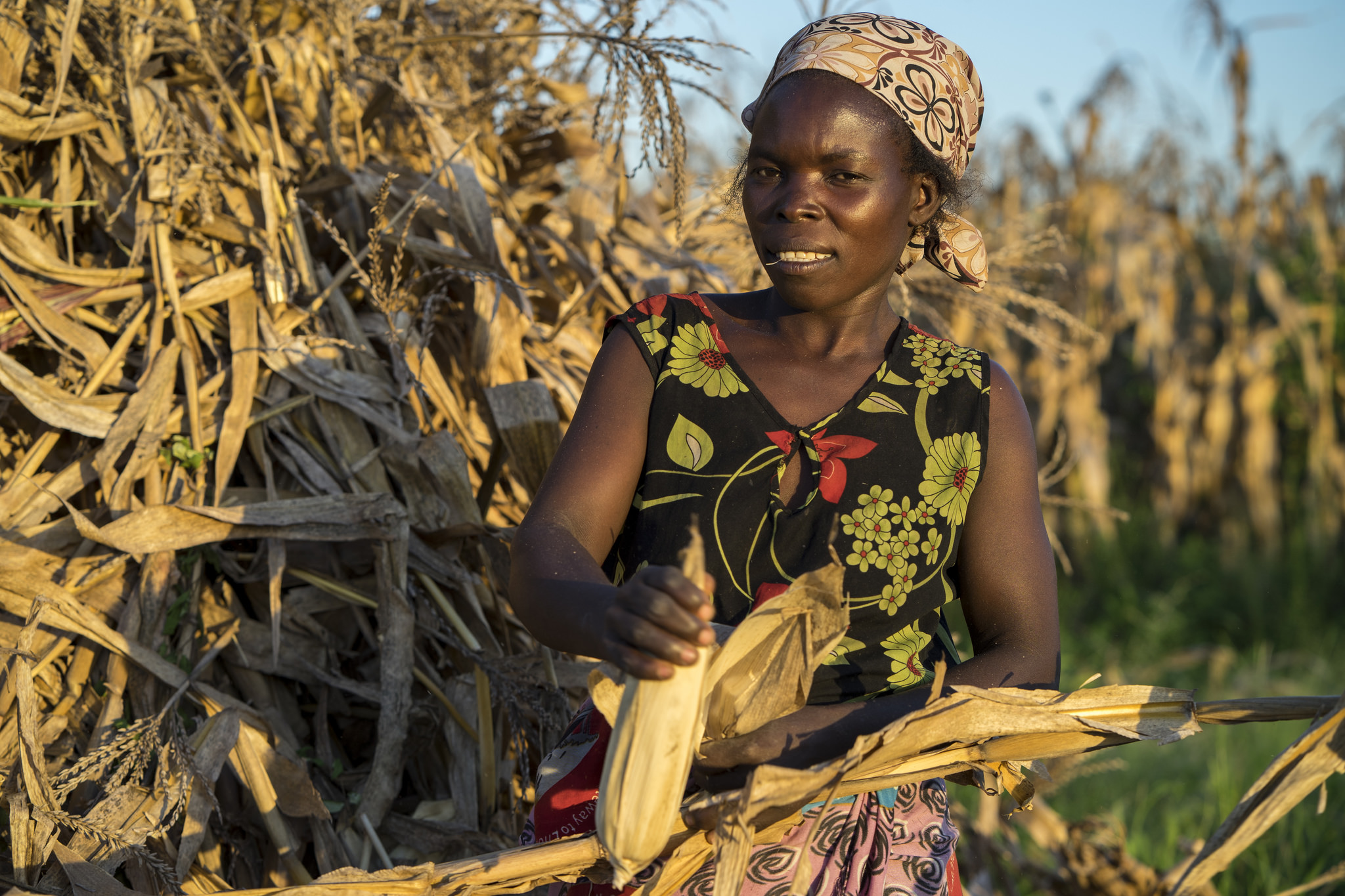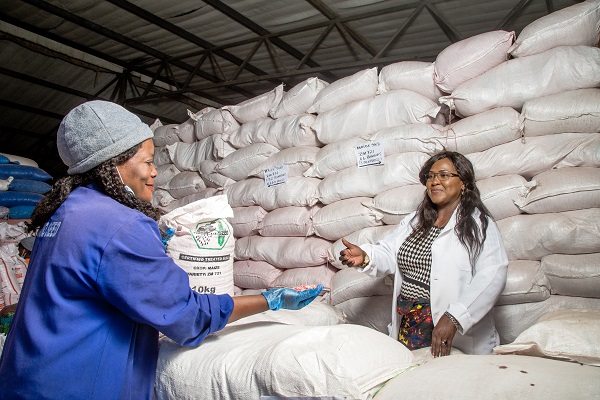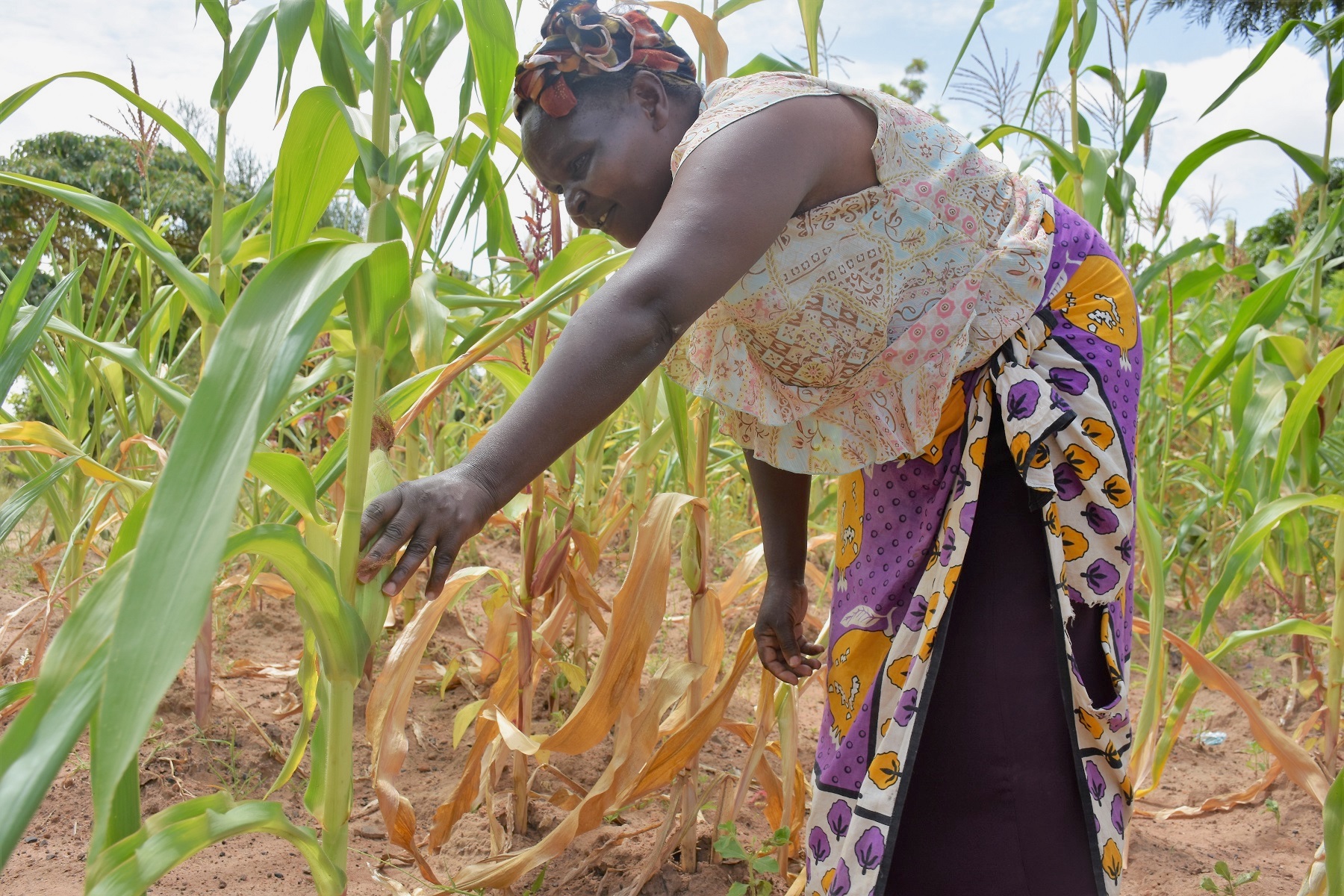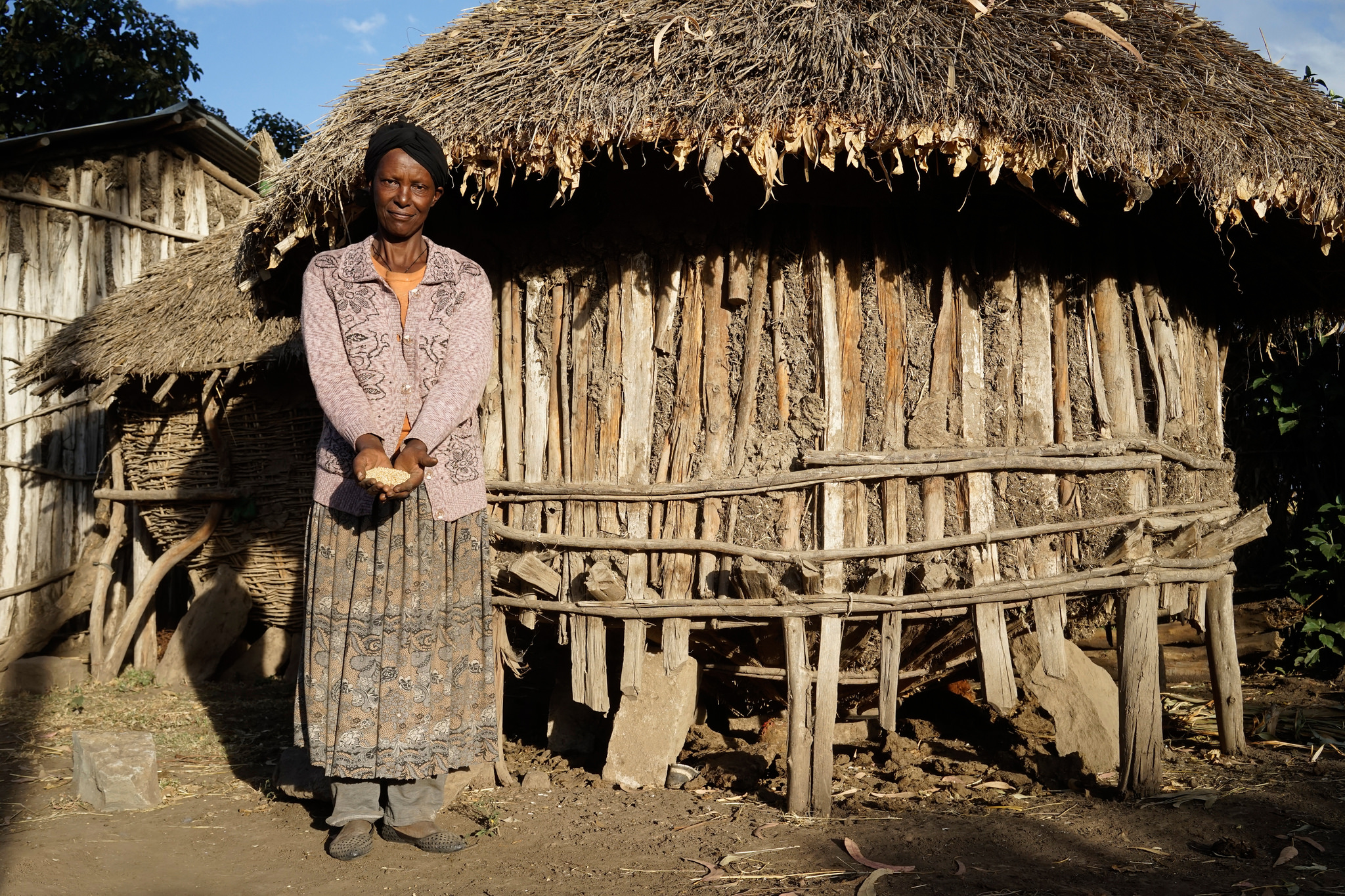Africa
CIMMYT’s work in Africa helps farmers access new maize and wheat systems-based technologies, information and markets, raising incomes and enhancing crop resilience to drought and climate change. CIMMYT sets priorities in consultation with ministries of agriculture, seed companies, farming communities and other stakeholders in the maize and wheat value chains. Our activities in Africa are wide ranging and include: breeding maize for drought tolerance and low-fertility soils, and for resistance to insect pests, foliar diseases and parasitic weeds; sustainably intensifying production in maize- and wheat-based systems; and investigating opportunities to reduce micronutrient and protein malnutrition among women and young children.
Ethiopia calls for continued collaboration to increase wheat production and meet nutritional and food security
 Capacity development
Capacity development
CIMMYT and EIAR officially closed a wheat seed scaling project that benefitted 131,132 households.
New publications: Biofortification of maize with provitamin A can reduce aflatoxin load
 Nutrition, health and food security
Nutrition, health and food security
This research is especially significant for countries where the health burdens of exposure to aflatoxin and prevalence of vitamin A deficiency converge with high rates of maize consumption.
Exploring young Africans’ role and engagement in the rural economy
 Capacity development
Capacity development
How important is farming relative to non-farm activities for the income of young rural Africans?
Solving the “last mile” challenge of maize seeds
 Nutrition, health and food security
Nutrition, health and food security
Reaching even the most remote corners of Africa, agrodealers give farmers access to agricultural inputs and services.
Digital imaging tools make maize breeding much more efficient
 Innovations
Innovations
These technologies, known as high-throughput phenotyping platforms, replace lengthy paper-based visual observations of crop trials.
Breaking Ground: Rahma Adam unleashes the agricultural productivity of Africa’s women and youth
 Gender equality, youth and social inclusion
Gender equality, youth and social inclusion
CIMMYT sociologist believes there is one vital resource that remains untapped to increase food security and boost livelihoods.
Growing need for food is reason for more biodiversity
 Environmental health and biodiversity
Environmental health and biodiversity
A recent study in Ethiopia has concluded that encouraging biodiversity on and around agricultural land likely increases its productivity.
How gender equity and social inclusion are improving the lives of rural families in Africa
 Gender equality, youth and social inclusion
Gender equality, youth and social inclusion
Women have the potential to be drivers of agricultural transformation.
International Women’s Day 2019: Women in seed systems in Africa
 Gender equality, youth and social inclusion
Gender equality, youth and social inclusion
These entrepreneurs are breaking social barriers while improving household nutrition and livelihoods.
Drought-tolerant hybrid seed offers farmers reprieve from hunger
 Capacity development
Capacity development
Farmers are reaping the benefits of SAWA hybrid, an improved maize seed variety designed to withstand drought conditions.
New publications: Gender and agricultural innovation in Oromia region, Ethiopia
 Gender equality, youth and social inclusion
Gender equality, youth and social inclusion
Authors examine how smallholders attempt to innovate with improved wheat seed, row planting, and the broad bed maker, introduced through the Ethiopian agricultural extension system.
